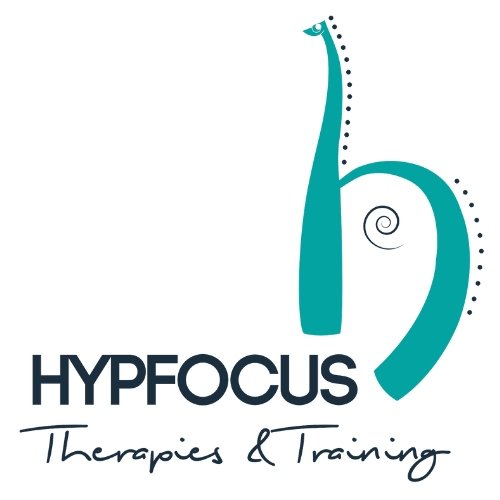Stress-Related Hair Loss and Mental Health
Losing hair can feel confronting, especially when there’s no clear medical reason behind it. For many people, stress is a big part of the puzzle. It doesn’t always show up the way we expect. Sometimes, it creeps in over time and starts showing itself physically—dry skin, tension headaches, or, in this case, hair coming out more than usual. You might brush your hair and suddenly notice more strands on the brush. Or maybe you’re spotting more in the shower drain, and it's starting to make you worry.
Mental health struggles can show up in all kinds of ways, not just in how we feel emotionally but also in how our bodies respond. The connection between emotional stress and physical symptoms is strong, and hair loss is one sign that a lot of people don’t talk about enough. When your nervous system is on high alert, your body responds in real ways. And while that can feel frustrating, there are supportive approaches, like hypnosis therapy for anxiety, that may help calm both the mind and body from the inside out.
How Stress Affects Hair Growth
Stress does a lot more than cause a bad mood or trouble sleeping. It flips a switch in the body that can affect your skin, digestion, and even your scalp. When you're stressed, your body produces more cortisol. This hormone helps you deal with urgent threats, but when it hangs around too long, it throws things off balance. That’s when it can start messing with your body’s natural systems, including the cycle of hair growth.
Hair goes through a few phases: growing, resting, and shedding. Stress can send a bunch of hairs straight from the growing phase into the shedding phase all at once. This is why, after a difficult time, like emotional burnout or losing sleep for weeks or months, many people begin to notice a difference in hair thickness or texture.
Some signs that stress might be affecting your hair include:
- More strands in your brush or shower than usual
- Sudden thinning, especially at the crown or around the temples
- Itchy or irritated scalp with no known condition
- A drop in new hair growth, making regrowth slower or patchier than usual
Even short-term stressors can pile up. Something like moving house, losing a job, or dealing with long work hours often doesn’t feel physically draining until your body starts giving signals like this.
The Impact Of Mental Health On Hair Loss
Hair loss doesn’t just play out physically. It can start a cycle of emotional challenges too. For a lot of people, changes in appearance bring up feelings of anxiety, shame or even panic. If you already live with anxiety or depression, it can make those feelings more intense. You might catch yourself avoiding mirrors or skipping social plans just to avoid having to style your hair. And that emotional hit can add another layer of stress.
When something like anxiety keeps your nervous system overstimulated, your body doesn’t get the break it needs to repair itself. That constant state of tension can quietly chip away at both your emotional health and your physical energy, slowing everything down—including hair regrowth. In many cases, the hair loss isn’t the root issue. It’s a clue that something deeper needs attention.
Addressing mental health might not stop the shedding right away, but it helps give your body a better chance to heal. When your emotional state feels more balanced, your system responds with more stable hormones, better blood flow, and stronger recovery processes. That’s why it’s so helpful to look at both sides together—what’s going on inside, and what’s showing up on the outside. The sooner these patterns are understood, the more empowered you feel to make changes that support your overall wellbeing.
How Hypnosis Therapy For Anxiety Can Help
When anxiety builds up over time, it can set off a chain reaction across the body. Trouble sleeping, tension in the muscles, shallow breathing—and for many people, hair loss. This is where hypnosis therapy can offer support. The aim isn’t to push anxiety away, but to change the patterns that keep it going. Hypnosis works by helping the mind reach a state of focused relaxation, which allows it to explore and shift unhelpful thought patterns.
During a session, the body is calm, but the mind stays alert. In this relaxed state, you're more open to positive suggestions that challenge the habits behind chronic worry or stress. These could focus on things like letting go of fear, changing negative thinking loops, or building inner calm. It often feels more like a guided meditation than anything dramatic.
Some common hypnosis therapy techniques used for anxiety include:
- Visualisation: Creating calm mental images tied to safety or soothing spaces
- Anchoring: Linking a physical action or word to a calming emotional state
- Reframing: Changing how you interpret fears or challenges
- Breathing cues: Encouraging relaxed, deeper breathing to break anxious cycles
- Emotional release: Helping the body feel and release tension without judgment
When your system spends less time stuck in anxiety, it has more space to do its natural repair work. That includes better digestion, improved sleep, and in some cases, stabilised hair growth over time. Whether hair loss is fully reversible or not, giving the body that reset can ease the pressure. Even just trading frantic thoughts for more grounded ones may help you feel like you’ve got your feet under you again.
Finding Support In Melbourne
Stress-related hair loss can feel overwhelming, especially when it sends you into a spiral of overthinking or body insecurities. It can be easy to fall into a habit of trying to solve it alone—late-night research sessions, new hair products every month, or jumping into fad treatments. What often gets missed is where the stress is actually coming from. That’s where professional support can make a difference.
In Melbourne, it’s now easier than ever to get help, even if you're short on time or outside the city centre. Many therapy providers, including those using hypnosis therapy, offer telehealth appointments. That means you can explore tools to reduce anxiety from home, your workplace, or wherever you feel most comfortable. Face-to-face sessions are also an option for those who prefer that setting.
Getting started doesn’t require having everything figured out. You don’t need the perfect problem or a speech prepared. All that’s needed is a willingness to explore how you’re feeling and a safe space to talk things through.
If you're considering starting this process, try these few steps:
1. Write down what you've been experiencing—mood changes, sleep issues, hair changes, or anything else
2. Think about how these things are affecting your daily life or energy levels
3. Look at your current coping habits—are they helping or just keeping your mind distracted?
4. Consider what kind of support would feel safest or most helpful, in-person or online
What matters isn’t whether you're doing everything right, but that you're looking for support that actually fits your life. Taking action, even something as small as sharing what you’re going through, is often the best place to begin.
Embrace A Healthier Mind And Body
When something like anxiety or stress starts affecting your appearance, it’s more than frustrating—it can hit your confidence and the way you move through your day. But there's a simple truth here: your mind and body are deeply connected. Taking care of one can help the other start to find balance again. Working through stress, calming the nervous system, and shifting ingrained thought patterns can all contribute to feeling more grounded—physically and emotionally.
The path back to balance doesn’t have to be perfect or fast. It just needs to be yours. That's the key to achieving change that holds. Whether it’s reconnecting with parts of yourself you’ve tuned out, or finally feeling some peace after months of tension, it's possible to get back to a place that feels steadier. The gooad news is you don’t have to do it on your own.
With the right tools and guidance, you can create a pace that suits you and gently build habits that make life feel less reactive and more responsive. That sense of calm, even if it's just peeking through at first, can help you reconnect with your rhythm again. And from there, your body often follows.
If you're feeling like anxiety is taking a toll on your day-to-day life, Hypfocus in Melbourne offers support that’s grounded, practical and personal. Through our approach to hypnosis therapy for anxiety, we can help you gently ease out of the stress loop and reconnect with a steadier rhythm. Let’s work together to help you feel more like yourself again—calmer, clearer, and supported every step of the way.

